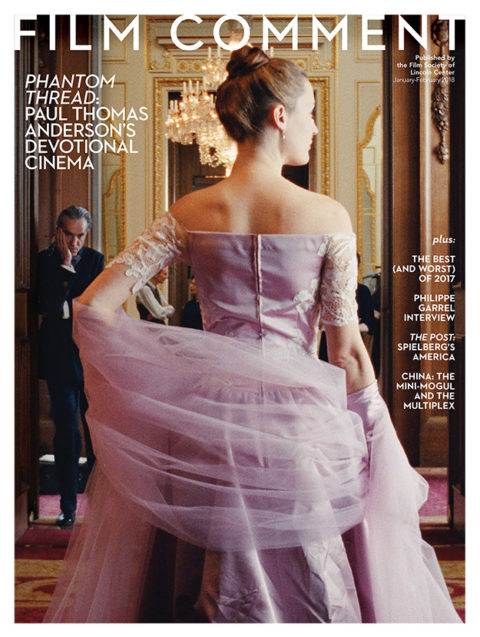By Devika Girish in the January-February 2018 Issue

Review: The Insult
(Ziad Doueiri, Country/Distributor: France/Lebanon/Belgium/USA, Cohen Media Group, Opening January 12)
Set in a region whose politics are as polarized as its history is entangled, The Insult offers an earnest attempt at nuance that feels almost like a protest. In Ziad Doueiri’s latest feature, a trivial spat between a Phalangist Christian and a Palestinian refugee snowballs into a sprawling courtroom drama that tests the precarious coexistence of Muslims and Christians in modern-day Beirut. Mechanic Tony Hanna (Adel Karam) is introduced to us as an enthusiastic supporter of the right-wing Christian Party, known for its anti-Palestinian rhetoric. In the opening scenes, Tony’s shudder-inducing hate speech (“I wish Ariel Sharon had wiped out the lot of you”) violently exacerbates his petty quarrel with Palestinian foreman Yasser Salameh (Kamal El Basha), establishing the film’s aggressor and victim right at the outset. However, as the two men fight it out in court, this demarcation—though never entirely abandoned—is increasingly muddied: Doueiri’s relentless excavation of the motives of the two men goes so far into the past—all the way back to the eye-for-an-eye bloodshed of the Lebanese Civil War—that their individual grievances dissolve into an infinite regress of historical and national trauma.

From the January-February 2018 Issue
Also in this issue
Raised during the war in communities taught to despise one another, Doueiri, a Sunni Muslim, and Joelle Touma, his Christian co-writer and ex-wife, have a penchant for remarkably even-handed narratives set at volatile political faultlines. In their rich and audacious The Attack (2012), for instance, a Palestinian doctor reevaluates his well-assimilated life in Israel after his Christian wife is identified as the perpetrator behind a suicide bombing. The doctor’s quest for truth takes him from Tel Aviv, where his wife is regarded as the face of terror, to the occupied territories, where she is hallowed as a martyr; however, in a ruminative film tightfisted with both details and judgments, he finds little in the way of answers or villains.
The Insult, made with an evident love for genre, is far less subtle in its narrative and thematic machinations. With fluid, careening camerawork and a heavy-handed score that underlines every dramatic inflection, the film revels in the Law & Order–style sensationalism of the courtroom: impassioned speeches are delivered by rival attorneys revealed to (gasp!) be father and daughter; melodramatic twists, such as the premature birth of the Hannas’ baby, raise the stakes of the proceedings; and the ideologically split audience, intended as an obvious microcosm of Lebanese society, heckles and hoots on cue.

For all its bluntness, however, the questions The Insult contemplates are as intractable and elusive as those in The Attack. This is increasingly evident as the courtroom debate slowly segues from the specifics of Tony and Yasser’s case to the intricacies of the Lebanese Civil War. At one point, Yasser’s lawyer invokes the Black September massacre of 1970 as justification for an act of rage in the Palestinian’s past; Tony’s lawyer counters by revealing, against his will, that Tony was a child survivor of the Damour massacre of 1976—hence his right-wing sympathies. It’s a moment of impasse in the film, a point of no return; it confronts us with the true complexity of the Middle Eastern conflict and the ways in which war obliterates the ideas of victimhood and responsibility, rendering the justice system farcically inadequate.
Hopeful nevertheless, The Insult places its faith in Tony and Yasser, who are presented as good men caught unwillingly in a media circus. Played with stoicism like you might find in a Western by Karam and El Basha, the characters are both ruined and redeemed by their masculine arrogance: they are too proud to let go of their conflict and too dignified to use their suffering to win sympathy in court. By the time the jury delivers its verdict—which, though fair, does nothing to assuage the tensions the case reignites—the two have already settled scores quietly and privately, reclaiming the possibility of reconciliation denied to them by the crushing weight of history.
Devika Girish writes on film and did her honors thesis on independent cinema in neoliberal India.







